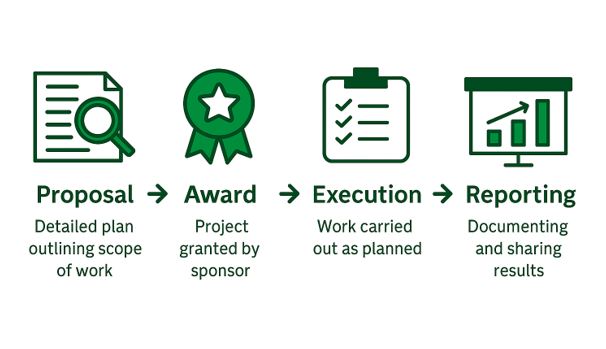Research Contracting
- About
- What is Sponsored Research
- UNT Sponsored Projects Regulations and Policies
- UNT Research Agreement Types
- UNT Research Agreement Decision Tree
About Us
The Research Contracting team partners with faculty to facilitate sponsored research by drafting, reviewing, and negotiating agreements with external collaborators, including universities, government agencies, and industry sponsors. These contracts are carefully structured to align with UNT policies, sponsor requirements, and applicable compliance standards. The team’s mission is to streamline the contracting process, empowering researchers to advance their work with clarity and confidence.

For Contracting-Related Questions
Please reach out to ResearchContracts@unt.edu